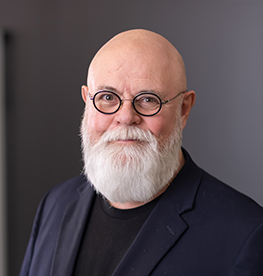Mendota Juvenile Treatment Center Renovation and Expansion
State of Wisconsin, Department of Health Services
The Mendota Juvenile Treatment Center (MJTC) is a secure treatment facility located on the Mendota Mental Health Institute campus offering comprehensive services to youth and teens who need intensive behavioral and mental health treatment beyond the traditional sanctions-based approach of youth corrections. The MJTC’s unique, nationally recognized approach provides care, encouragement, treatment, and education, which with the gradual development of trust, brings about more acceptable choices and personal esteem and autonomy. The existing facility was not optimized to support this care model, so the project was an invaluable opportunity to purpose-build and expand services to include girls.
Patients are placed on one of nine custom-designed units based on their security needs and responsiveness to the treatment program, easing their path back into society– as patients progress, they’re rewarded by moving to units with increasing privileges. A wide array of state-of-the-art programs and service spaces allow more very high-risk youth to engage in MJTC’s trauma-informed, treatment-based programs. With a focus on hope and healing, the interior incorporates evidence-based design practices as well as aesthetics of joy to promote natural light, positive distractions, social support, and access to nature. The space incorporates pops of color and therapeutic wall graphics, while carefully avoiding colors with gang associations or other behavioral triggers.
Project partners: Findorff, Mead & Hunt, OTIE, Saiki Design, Pineapple
Team
Additional Team Members
Tom Hanley (retired)
Principal
Scott Holmes (retired)
Principal
Mark Ludgatis (retired)
Principal
Joe Mueller (retired)
Senior BIM Technician
Ron Laughlin (retired)
Senior Project Architect
Laura Davis
Senior Project Architect
Daniel Treinen
Design Leader
Project Specs
Size:
102,000 s.f. (78,000 s.f. new, 24,000 s.f. remodel)
Components:
50 new single occupancy bedrooms and 43 renovated existing bedrooms house 93 patients: 73 boys and 20 girls. A two-story addition was built first, then patients were moved to the addition to facilitate renovation of the existing facility, allowing MJTC to remain open during construction. Self-contained program spaces include a health services unit including dental, classrooms, art space, computer lab, music studio, decompression calm rooms, gym, and multipurpose indoor recreation spaces. A greatly improved main visitor/public entry experience and new administration and visitation areas were also incorporated.
Female and male populations are kept separate throughout the facility. At spaces where they’re adjacent to each other (indoor and outdoor), the competing needs for visual separation, staff observation and access to daylight and exterior views are all accommodated by windows with “electrochromic” glass that staff can set to opaque or transparent through the building’s security control system.
Completion:
February 2025


























